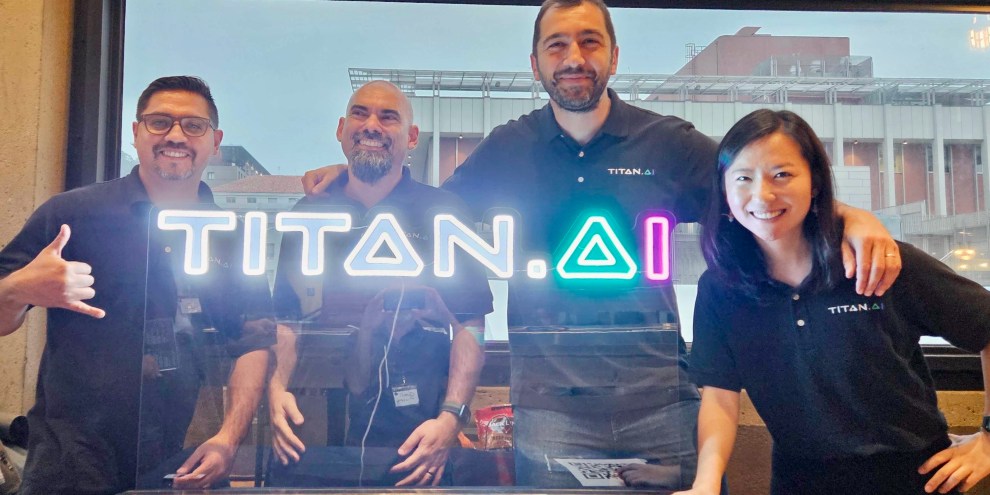Titan AI leverages generative AI to streamline mobile game development. A substantial investment is being made in generative artificial intelligence, notably in the game industry. A new mobile games company called Titan AI successfully raised more than $500,000 in pre-seed investment, which Berkeley SkyDeck headed. Titan AI has joined several other generative artificial intelligence gaming businesses working toward lowering the process of developing 2D and 3D material for video games. The production of mobile games might cost as much as $250,000, depending on the level of intricacy involved.
To generate 2D images, Titan AI uses picture generators such as Stable Diffusion and DALL-E. Subsequently, the company employs its unique technology to merge these elements with 3D models. Additionally, the business is teaching artificial intelligence to construct level segments, which include easy, medium, and challenging. According to the company’s co-founder, Fabien-Pierre Nicolas, this is yet another “labor-intensive task.”
Nicolas, a former vice president of U.S. marketing at SmartNews, and Victor Ceitelis, a co-founder of Scenario, a generative artificial intelligence business that enables game creators to generate bespoke picture generators, created the idea for Titan AI.
Creating more inclusive experiences for players who are significantly underrepresented in games is the most crucial goal the firm has set for itself.
In an interview with TechCrunch, Nicolas stated, “We both saw an opportunity to help many people feel better represented in games, which is a central element of today’s entertainment culture, and to make games for people we love—our families.” He was raised by a father who identified as LGBTQ+; his wife is of Korean descent. Ceitelis, on the other hand, is a Latinx individual born to Chilean parents.
In many video games and films, the protagonist is shown seizing and stealing artifacts from Mesoamerican civilization. Nicolas continued, saying, “[Ceitelis] never intended for his people to be the heroes in games.” This is why Titan AI intended its debut game, Aztec Spirit Run, to “reverse the trend” and include a main character who competes against Conquistadors to protect the treasure in the temple.
Considering that endless runner games such as Temple Run and Subway Surfers have been successful for a considerable amount of time (more than a decade), it is a simple bet to follow this runner pattern. This is especially true for developers interested in experimenting with generative artificial intelligence. According to Nicolas, Titan AI has utilized the technology to develop hundreds of in-game character customization aspects, including “outfits and tattoos,” among other things. In the future, the business plans to increase the speed at which characters may run and the number of goods they can acquire, such as golden skulls.
“During the early stages of our research, we made the discovery that the majority of people who made up the under-represented segments had participated in at least one runner,” Nicolas explained.
On the other hand, even though running games are very addictive and have the potential to be successful for Titan AI, many people will probably claim that it is too much. As a result of the fact that the future of generative artificial intelligence in gaming is filled with opportunities, we are excited to see what further innovations the firm can come up with. For example, generative artificial intelligence might allow gamers to create their in-game avatar from scratch.
Nicolas explained that the runner template aimed to test our platform’s capabilities to construct playable prototypes containing 3D features. Our unique artificial intelligence also enables us to test various ideas concerning AI-level building. He disclosed that the corporation is experimenting with a different game template, but he did not specify what that template was.
Because Titan AI thinks that accessibility is of the utmost importance for underrepresented audiences, the company has made all of its games available for free play. In-app advertisements and premium features are the firm’s primary income sources.
He stated that Titan AI’s investment round is “a story of hope and optimism in the current ‘doom and gloom’ in the gaming industry: a new studio raising money with a positive mission for the world.” Nicolas also mentioned that the funding round symbolizes “a story of hope and optimism.”
Additionally, seven angel investors took part in the round. Among them were Andreas Gross, who is the head of the generative artificial intelligence product at Meta; Benjamin De la Clémendière, who is the co-founder of BlackoutLab; Yury Mazanik, who is the co-founder of Belka Games; and Bob Meese, who is the chief business officer of Duolingo.

